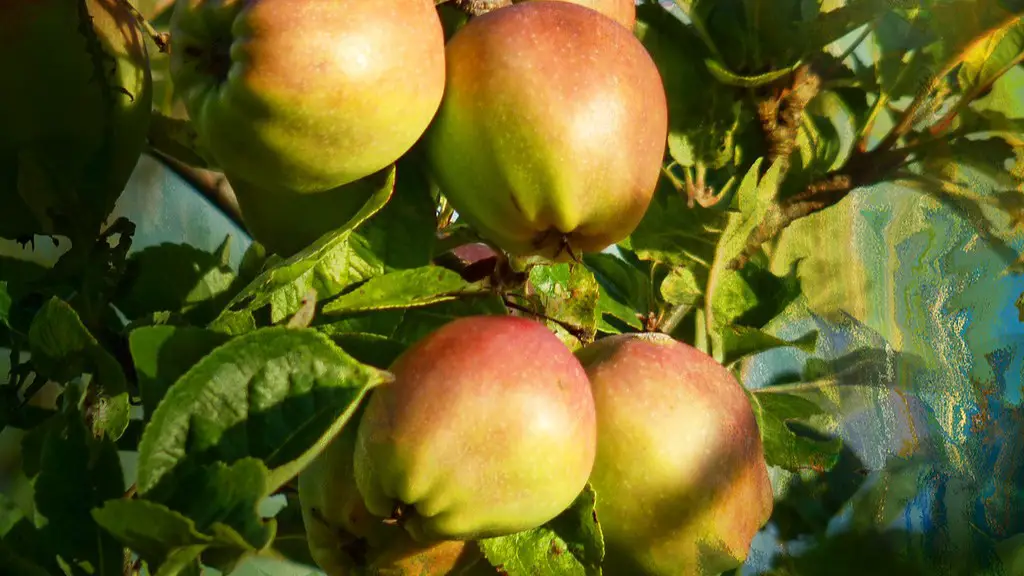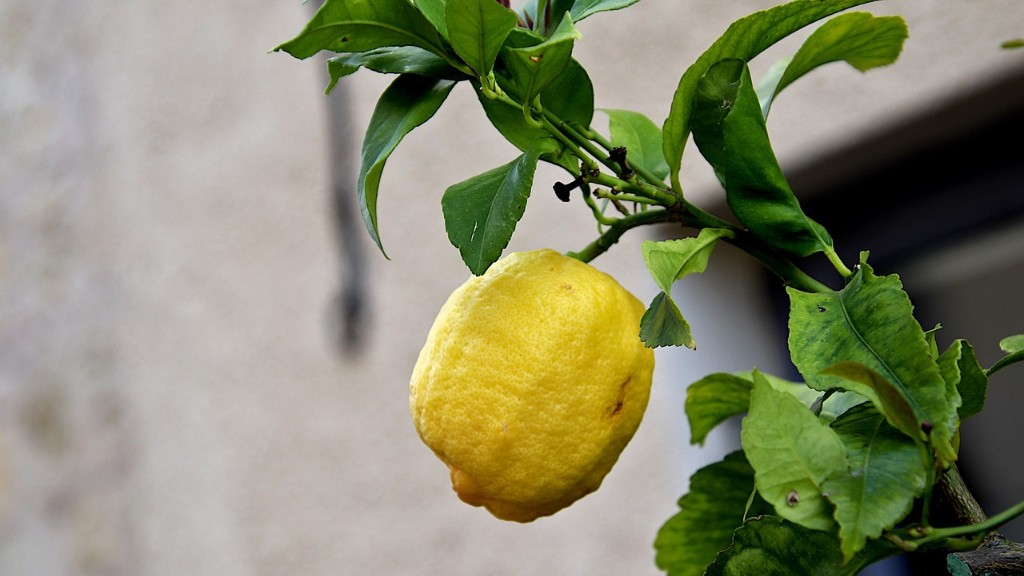An apple tree is a great asset in any garden, but sometimes, apples can fall from the tree, making it difficult to harvest them. Here are some tips to help stop apples from falling from your tree.
Firstly, prune your tree regularly. Pruning not only helps to encourage fruit production, but it also helps to keep the branches strong and stable, minimizing the chances of apples falling from the tree before they are ripe. Regular pruning also helps to keep the tree healthy and reduce the risk of disease.
Secondly, use the appropriate support structures, such as staking and tying, where needed. Support structures can help prevent strong winds from causing apples to fall from the tree, and they can also provide guidance for the tree branches to help promote a healthy growth habit.
Thirdly, consider using appropriate pest control measures. Insects and disease can cause weak branches and can even lead to apples falling prematurely, so it is important to monitor the tree’s health and take active measures to control pests.
Fourthly, keep the area around the tree well-mulched. Mulch helps to keep moisture from leeching away from the soil, which helps the tree remain well-nourished and grow strong branches that can support apples.
Finally, water the tree regularly. Trees need a certain level of moisture in order to stay healthy and productive, and lack of water can cause the fruit to drop prematurely.
Winter Protection
As temperatures get cooler during winter, there’s more of a risk of apples falling from trees. The risk is higher with apple trees grown in colder climates. To protect your tree during winter, wrap burlap or other lightweight fabric around the trunk, and keep a layer of mulch around the tree to protect the roots and help retain moisture in the soil.
Also, be sure to prune the tree before winter to ensure the branches are healthy and strongly supported. If your tree has a lot of low-hanging branches, trimming them can reduce the risk of fruit being damaged by snow and ice.
Finally, make sure the root system is well-hydrated during winter by watering it as needed. Dry soil or freezing temperatures can severely damage tree roots and make the tree more vulnerable to falling fruit.
Use Netting
For apple trees that grow in areas with strong winds or birds, using a netting is a good way to keep the fruit from falling prematurely. Netting provides a physical barrier that can both block strong gusts of wind from knocking the fruit off the tree, and also prevent birds from dining on ripe apples.
When using netting for an apple tree, be sure to also use poles and stakes to lift the netting off the tree and keep it taut. This will help to ensure that the netting does not damage any parts of the tree, and also ensure it can catch any apples that come off during strong winds.
Also, be careful not to use the net too tightly, as the tree might be damaged from too much pressure. When in doubt, try using a looser net to prevent any apples from getting stuck in it.
Gravity Fed Bag
Another way to stop apples from falling from your tree is to use gravity fed bags, which are simple bags that are tied to the tree’s branches and can catch any apples that fall off. The gravitational pull of the bags will catch the apples in the bag, so there’s no need to check the ground around the tree for any dropped fruit.
When using a gravity fed bag, be sure to leave enough space in the bag for the apples to fall in but not too much, as this may cause the branch to become weighed down and potentially break. Also, be sure to check the bag regularly to ensure that it is not getting too heavy, as the growing apples may cause it to become overburdened.
Also, it is important to tie the bag securely to the branch, as loose ties can cause damage to the branches if the bag becomes too heavy.
Fruit Removal
Finally, one of the easiest ways to prevent apples from falling is by removing them from the trees as soon as they are ripe. The earlier you can pick the apples, the more chance there is that they won’t fall from the tree before you can harvest them.
It is also important to remove any apples that show signs of rot or damage, as these apples can spread disease to the other fruit and cause them to drop. To help make sure no apples are missed, consider doing regular inspections of the tree.
When removing apples, use a thin, sharp knife and make sure you don’t cut any of the tree’s branches. This can help to minimize any damage caused by the removal process.
Organic Sprays
Organic sprays can be a good way to help keep bugs away from your apple tree and keep the tree healthy. Spraying the tree with a mixture of soap and water can help to keep away certain kinds of pests, and neem oil can also be effective in keeping away certain insects.
Spraying organic insecticides on the tree can also help to keep away certain kinds of disease-causing organisms, such as fungi and bacteria. However, be sure to consult a local professional if you are unsure about which kind of spray to use, as some of these products may be toxic to humans and animals if used incorrectly.
Finally, it is important to be aware of the weather when spraying your apple tree, as some of these sprays can be washed away in rain or run off in heavy downpours. Spray when the weather is stable and there is minimal chance of rain or strong winds.



